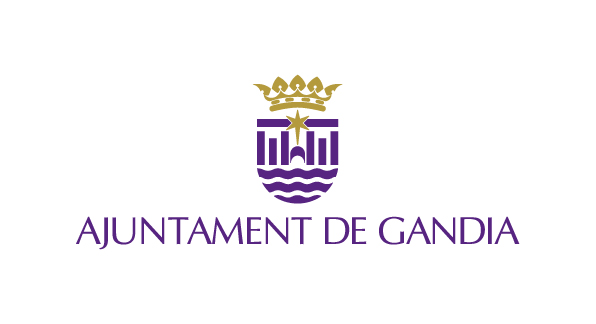 Gandia Campus, Universitat Politècnica de València
Gandia Campus, Universitat Politècnica de València
Master's Degree in Digital Post Production
60 credits
Credit 35,34 €
(2024/2025)
35 openings
(2024/2025)
Introduction
This master's degree responds to the demand for specialists in the post-production of audiovisual products focused on entertainment, informative, educational and public service contents that make the most of the interactive and innovative capacities of new digital media, and that represent an impulse to integrate the maximum number of citizens into the Information and Knowledge Society.
The master's degree trains professionals specialised in the final phase of the production process of an audiovisual product, with the common audiovisual module covering the core subjects in technology, narration, editing and composition from the point of view of both audio and video, to go on to specialise in each branch with a wide range of optional subjects. It is a master's degree with a professional and research orientation, which is reflected in two different training itineraries. You can choose to do an internship in external entities, or to carry out an original research project as a master's thesis, allowing you to extend your research with a doctoral thesis in the UPV's PhD programme in Cultural and Communication Industries.
The master's degree is taught at the Gandia campus due to the high specialisation of its teaching and research staff, as evidenced by the trajectory of its degrees, especially Audiovisual Communication, Higher Technical Engineering in Telecommunications specialising in Sound and Image and the Master's Degree in Acoustic Engineering. This also allows the use of shared facilities and laboratories such as the TV studio, the radio studio, the videography room, the audiovisual equipment for filming, sound recording and lighting, etc. It has more than 80 collaborating companies of reference in the audiovisual sector, so that students of the master's degree can carry out internships and/or their master's thesis in companies in the sector..
Its teaching staff includes the participation, as external lecturers, of different professionals from the sector, which has enabled it to reach various external certification agreements with the following entities participating in the Master's Degree:
- AVID, the only external AVID certifying teacher in Spain will give classes, certifying his classes with an external exam.
- Adobe After Effects, taught by an external certifying teacher and expert in this software package.
- Apple Logic Studio, will be taught by a certifying teacher and expert in this software package, certifying his classes with an external exam.
- Pro Tools, an external lecturer and expert in this software package will give classes.
The master's degree is equipped with a specific classroom equipped with the post-production equipment and software used in the professional world. A classroom with 21 Apple computers and licences for AVID, Pro Tools, Apple Logic Studio and Adobe Production Premium with After Effects, among others.
Objectives
The UPV's Master's Degree in Digital Post-production trains professionals in the language, techniques and tools necessary to carry out the digital video and audio post-production tasks required by the sector.
Graduates will be able to form part of interdisciplinary teams in audiovisual production companies, favouring communication and the exchange of knowledge. They will also know how to plan, design and develop the post-production of an audiovisual product; delve into non-linear editing and video and audio composition; investigate the relationship between sound and image from a creative, aesthetic and narrative point of view in different audiovisual media and technologies; master the technologies and work processes in digital post-production and develop new audiovisual genres through post-production techniques.
Aimed at
This master's degree is aimed at those who have a higher university degree and wish to broaden their training in the field of Audiovisual Communication and the Visual and Sound Arts..
The multidisciplinary nature of these areas of knowledge and their link with image and sound technologies are related to the following degrees considered a priority for access to the master’s degree (or future ones that may replace them), with the following priority: Graduate of Audiovisual Communication, Graduate of Fine Arts (esp. Audiovisual), Technical Engineer in Telecommunications (esp. Image and Sound), Graduate of Advertising and Public Relations, Graduate of Journalism, Design Engineers, etc.
The Academic Committee of the Master's Degree may consider the acceptance of other degrees depending on the academic and professional profile of the candidate, both national and foreign, as well as modify the access quotas by degree or group of degrees.
Admission criteria
To be admitted to the master's degree, students must hold an official Spanish university degree or another degree issued by a higher education institution in the European Higher Education Area (EHEA). Likewise, graduates from educational systems outside the EHEA may be admitted without the need to have their degrees recognised, subject to verification by the University that they accredit a level of education equivalent to the corresponding official Spanish university degrees and that they are recognised in the country issuing the degree for access to postgraduate studies. Access by this route will not imply, under any circumstances, the validation of the previous qualification held by the interested party, nor its recognition for any other purposes than that of taking the master's degree.
Organisation
Escola Politècnica Superior de Gandia (Higher Polytechnic School of Gandia)
Participants
- Communication Area UPV, Higher Polytechnic School of Gandia
- Gandia Municipal Council
- Federation of Valencian Audiovisual Companies (EAVF)
- Masmedios Chair in Audiovisual Communication














